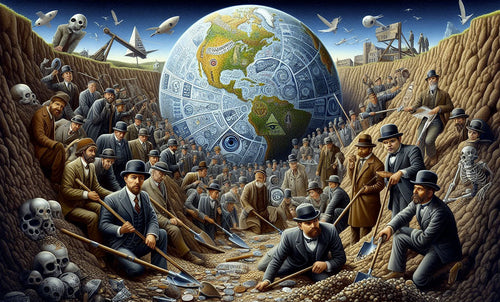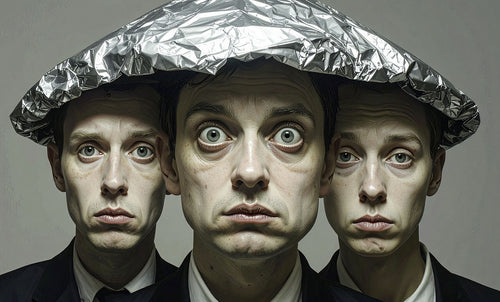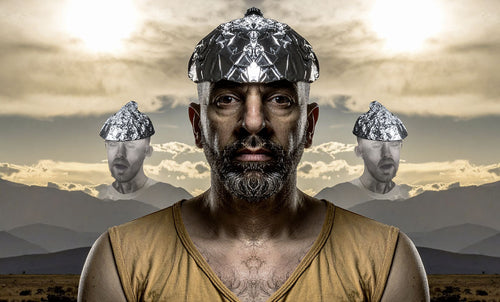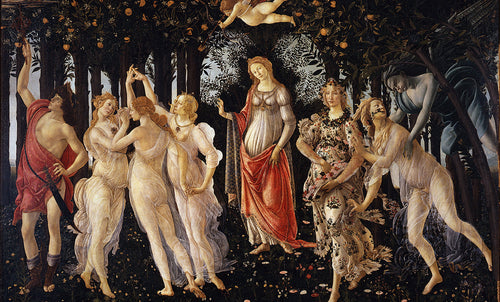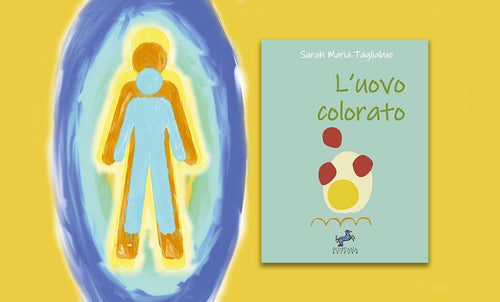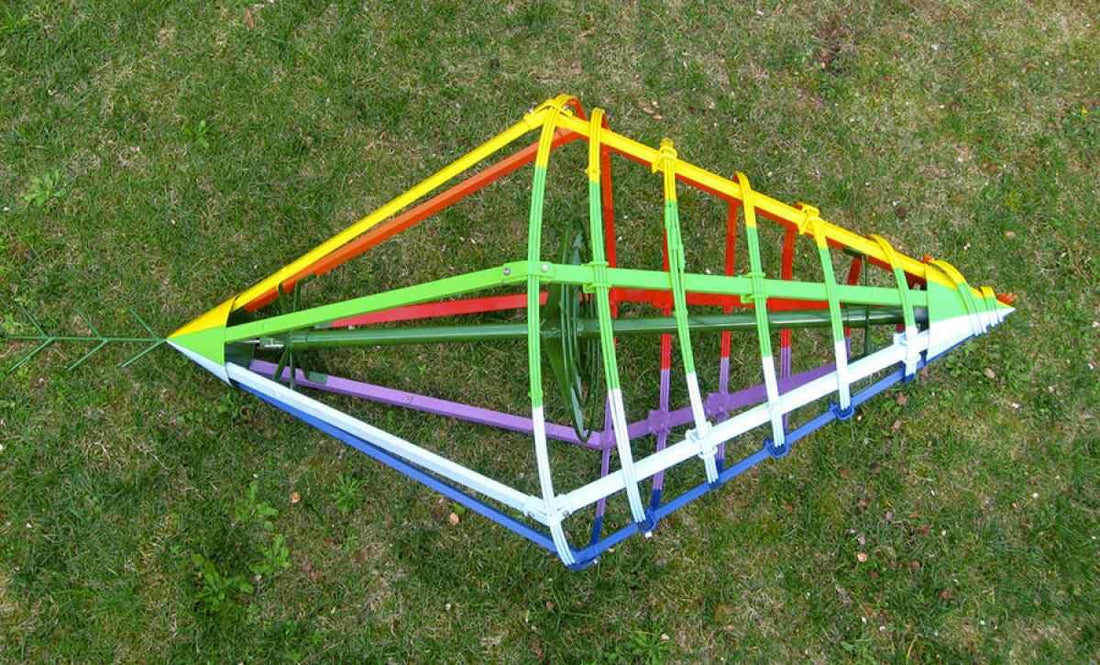
Pier Luigi Ighina. The Earthquake stopped at Imola
Domenico CaputoThe secret story of an incredible device
This article is about my research in the field of border sciences but moves away from the theories accepted by researchers who belong to the mainstream of conventional science.
We will cover the studies and research of Pier Luigi IghinaPier Luigi Ighina, necessarily explained in general, and of one of his own inventions in more detail: the earthquake valve, a version which, according to the intentions of its inventor, is useful in damping the energy of a seismic event in the area in which it is placed.[1]

The Man of the Clouds
There are precise reasons that over time led me to install 12 earthquake valves in as many earthquake zones of Italy, confirmed periodically by the facts that in every area protected by the instrument, the seismic events have a more rarefied intensity and frequency, they have become feeble and rare events. For some time now, I have firmly believed in the theories of Pier Luigi Ighina from Imola, also known as "The Man of the Clouds”, who died in 2004 at the age of 95 years and who was still a little-known inventor of amazing machines; machines said to be capable of changing the weather, transforming matter, capturing energy from ether, healing sick cells, and dampening an earthquake.
The curious inventor was interviewed by local television stations as well as by three Rai Reports and was invited many times to the Costanzo show, and finally with Voyager who made a documentary, because despite appearing to be a most eccentric person, there seemed to be a grain of truth from his words and the cleverness of Ighina.

Many positive testimonials existed from the area of physics but particularly by Guiliano Preparata and Emilio Del Giudice[2], scientists who were part of the official system but open to opportunities that a healthy curiosity and research can grasp. Moreover, Ighina did seem beautiful ... inspiring wonder and curiosity from the filming by the three Rai Report cameras when the machine he invented demonstrated that it was able to open a big hole in the sky covered with clouds above his house. The machine was called the "strobescope" and it was not the first time that Pier Luigi Ighina showed astonished onlookers that it was able to attract and repel the clouds and create good and bad weather over the racetrack of Imola, adjacent to his home, where it rained regularly every Sunday during the race. His research and his insights began at an early age when he realized that there were particular qualities regarding electromagnetism, applications from the study of matter that led up to the development of an atomic microscope able to photograph what he called the magnetic atom, the smallest particles, the base of all matter.
Later it was said that, thanks to the interest of a common relative, he had the opportunity to work with Guglielmo Marconi and after the untimely death of the Nobel Prize winner, Pier Luigi Ighina continued these studies. Indeed little is known to the general public on the work of Marconi after the discovery of the radio, which was made among others at a young age. And it is well-known that shortly before his death he was about to give humanity a discovery of an even more useful tool than that of radio communications.
In his quotes, Ighina often cites Marconi, describing the studies and findings related to light energy, coming in a spiral form emanating from the Sun, an absorbed and reflected matte to our planet Earth, in a continuous and eternal harmonic beat that is the cauase of Life (Vita) on our planet, but also, as we shall see, of his Vita... lity as well.

But when our central star emits a flares or solar storm, then from the earth's core unleashes an alteration, an answer, with plasma emanation to find a natural outlet, which may erupt in an earthquake.
When Ighina was asked to explain the operation of the valve, he described it in his own way, as if he never wanted to be taken seriously, so he was able to go "back to do what he wanted." A comparison was made with the inner tube of a bicycle, which needs a valve so that the pressurization does not cause the tire to burst.
But this description has always given rise to misinterpretations on a technical scientific basis on the part of scholars. The valve of the air chamber is suitably made with a non-return system to prevent the air from being pumped into the interior so it does not come back into the inflator. Instead the valve for earthquakes should be compared to that of an italian coffee maker or to a valve of a pressure cooker, which are maximum valves that open to avoid excessive pressure that can cause an explosion of the coffee pot or the pressure cooker, in this case an earthquake.
You can find an interview to Pier Luigi Ighina on You Tube.[3]

Telluric lights photographed in China just before an earthquake

Pier Luigi Ighina said the earthquake is compressed gas
The thinner gas that is formed by the Sun, is plasma, the fourth state of matter, and is considered in traditional science to be scarcely present on Earth, except for lightning and for the Northern Lights, but currently constitutes 99% of matter in the universe. In addition to the Sun, stars and nebulae are made of plasma.
Lightning, the aurora, the sun, the stars; all these phenomena from plasma have one thing in common: Light!
This fact is confirmed by a particular effect that occurs during an earthquake, as even the scientific community had to admit of the presence of telluric lights, very similar to the Northern Lights, photographed in the sky above or in the vicinity of areas when there is a tectonic stress, seismic activity or volcanic eruptions occurring.
These have been seen and documented in Nagano, Japan, during the seismic swarm that occurred between 1965 and 1967, and even in earthquakes in Hawaii in 1975; in China in different locations and in the earthquake in 1976 and more recently, in Peru, in the earthquake of 2007 and in Chile in the 2009 earthquake. The phenomenon has been observed and documented during the earthquake in L 'Aquila, Italy, with bright events that began nine months before the smallest part of the main shock and continued for 5 months after the occurrence of the earthquake.
These lights, sometimes white and sometimes blue with a wider spectrum of colors, may be the demonstration of the emanation of plasma gas from the Earth particularly marked in the case of a seismic event and represents a precursor of an earthquake.
Some geologists believe this spectrum is a disturbance that occurs when the crystalline rocks are deformed by the slow compression of the soil that occurs before earthquakes. But that same type of lights is regularly photographed in the sites where the earthquake valves are presently installed, making plausible the hypothesis that in those areas the slow release of these emanations has become a natural event.
Ighina claimed in another interview: “An earthquake lacks an energy, which is solar. To eliminate this imbalance, the two energies simply combine and ensure that they are equal. That's why I designed the seismic valve.”
The inventor Pier Luigi Ighina describes the earthquake valve and its function as a balancer of an imbalance of positive and negative forces, taking advantage of the spiral shape, the colors of the solar spectrum and the aluminum powder contained within the instrument, similar to the receptors of positive solar energy that suddenly finds itself at fault, for example, after the explosion of a large-scale flares, when the invested Earth responds with violence.
The root of the valve, firmly planted in the ground, would then function similar to a lightning rod that would, on the contrary, attract the compressed energy in the underground making it vent into the air, where it can do no harm. The earthquake valve Ighina designed could slowly release the pressure that otherwise would create a hazard, if left to decompress.
Distant Worlds Connected: Story of a Russian genius and an Italian who have never met
There have been other high-level scientists to confirm the studies of Pier Luigi Ighina. Among all the hypotheses that aim to understand earthquakes in order to be able to predict them before they happen, the Russian scientist Alexey Dmitriev, who seemed to be intrigued by the theory that led to the invention and the existence of the instrument, called it the "seismic valve" built the first time by the Italian researcher Pier Luigi Ighina. As if Dimitriev had worked out the theory and Pier Luigi Ighina had fine-tuned the instrument! Between two distinct, separate searches, there are similarities such that one would think that the two scientists had worked together to give an explanation for this discovery of the origin of earthquakes.
We start from the main common concept, according Ighina and Dmitriev, but as we will also see according to other illustrious names, that the center of the Earth would not be an iron core, but was made of the same plasma that makes up the sun.

The Plasma and the Vital Vastness
Dmitriev says that "a highly-charged energy in the space between the planets has formed a ‘two-way circuit’ that allows events on Earth to affect the Sun, not just the opposite”. Also according to this scientist, almost all earthquakes and volcanic eruptions are accompanied by sightings of luminous formations. These can be detected before, during and after the events themselves, and thus are closely related to the events.
Research by Ighina and his discoveries are supported by authoritative evidence by Richard Pasichnyk, who in his book “The Vital Vastness” develops the idea that the center of our planet actually is not metal but a form of hot plasma similar to that of our sun’s plasma energy. To confirm this thesis of the presence of a small plasma sun in the center of the Earth, there are also experiments by Dr. Massimo Teodorani, interviewed by the researcher and radio personality, Linda Moulton Howe, November 17, 2001, who reported that his research had made it possible to calculate the temperature of the center of the Earth, coming to the conclusion that it is slightly higher than that of the sun.
Evidence was found from the experiments of Pier Luigi Ighina by researchers who conducted studies in the field of energy in the toroidal shape. The shapes and colors of the instrument recall the double tetrahedron placed in rotation by the spiral shape. The double tetrahedron is the form of an energy balance - the upper part represents the positive part, masculine, right-hand rotation, the lower part is the female, negative, in counter rotation. One of the hypotheses is that the upper part of the instrument is specially enhanced by insertion of the triple spiral to create an imbalance in favor of the positive part, so as to obtain a greater solar pressure relative to Earth.
Other scientists have expressed very similar ideas to those of Pier Luigi Ighina, but there are also others in the world that have replicated tools similar to those of our frontier scientist. There have been studies that have in some way confirmed the hypothesis of the Imola genius, applying them to trying out similar forms, materials, colors. The fall of the Iron Curtain in recent years has allowed access to the huge volume of prepared studies by Russian scientists, with the ability to inspect experiments that in the West would be placed on the edge of science fiction. An undeniable fact is that science has greatly invested in the “land of fruit” hypothesis of the study of ancient cultures and the observation of the behavior of nature, leaving nothing to understand which mechanisms set off seemingly small or large random events. The resulting experiments from these searches lead to conclusions that invite us to write the data of our physics books with a pencil.
The experiments of Russian and Ukrainian scientists performed with pyramidal forms constructed with a height of 22 and even 44 meters gave excellent results with respect to the purification of water, the yield of seeds, the attenuation of meteorological phenomena and decreased seismic activity. Teams from the Russian National Academy of Sciences studied data of earthquakes in areas surrounding the pyramids and compared them with the previous data of the constructions themselves. They found that the pyramids had the characteristic of dissipating the energy accumulations that create sudden and violent earthquakes. Instead of seeing a great and powerful earthquake, there were several hundred small harmless shocks. Furthermore, the atmosphere surrounding the pyramid appeared to be shielded from severe climatic conditions, causing a general decrease in the amount of violent weather behavior. These are the same observations that the people who have earthquake-proof valves in their area bring to me.
But to stimulate this research to convince me to proceed to direct experimentation, it took a clear precedent and a precedent there was: On December 31, 1985 there was an earthquake that shook Faenza, avoided literally Imola – that’s in the middle - and came again to Modena.
The next day the newspaper of Romagna headlined: "An earthquake in Faenza and in Imola nothing!"
In fact in Imola, where the shaking was not felt, the particular device, a seismic valve, was installed at that time. It was enough for me, although I was aware that a serious person, with his head on his shoulders never wasted his time in these searches without scientific basis, much less would have gone out into the open, in the public square, describing tools and theories with articles published on a website[4].
The exiting premises of a new world

I published my intention on my site www.cambioilmondo.it, offering it to those interested in the experiments to contact me.
The first two valves went into the area. One in south Rome, another in the province of Viterbo. The third valve I installed in the province of Vicenza for a young family, another in Ceprano, promoted by an homeopathic doctor. An earthquake valve was put in south Cesena, on a farm of another family who occasionally sends me wonderful photos with colorful spots in the sky above the valve.
An employee of the province of Treviso now has an earthquake valve in her garden, two other valves in the province of Cosenza, two recently placed in Forli, and last one installed, in May, in the province of Reggio Emilia, authorized to give the coordinates as Gaia, as he called his earthquake-proof valve, because each valve will be given a name. He devotes these to something important, starting with the first one installed in memory of Alberto Tavanti, my close friend and a collaborator of Pier Luigi, continuing with valves dedicated to Pier Luigi Ighina, Tesla, Bufalini, etc.
Other valves will be built; they are waiting for one in Alexandria and in Bergamo, but there are also prospects for collaborations with engineers in New Zealand, Mexico, and in California. Pier Luigi Ighina, who died in 2004, did not have the satisfaction of seeing his research recognized as valid during his life, even though his insights, as we have seen, were expanded upon by other scientists around the world, although some of his forty discoveries years ago are astonishingly credited to young researchers across the border, considered as the newest discoveries of modern science. For example, in recent studies concerning the possibility of obtaining electricity from trees completed by researchers at the Massachusetts Institute of Technology recently, was an experiment carried out by Pier Luigi Ighina 30 years ago.
In fact, Pier Luigi Ighina was always said to be thirty years ahead of official science, most of his theories and his ingenious machines were developed just about thirty years ago. Is it not time to take a look at those studies and see if we can achieve a better way to deal with the nature of our Mother Earth? This conference has been prepared for those people who have an open mind and that still pose questions and still have gaps in their minds to be filled, although absolutely not with empty heads.
Epilogue:
It has been two years since the day I wrote this article, the number of valves installed in the Italian territory has risen to 26[5].
We never get support from anyone, we did not accept interviews and we avoided the noise of the piazza (the crowds). This, now distant conference was the only official release. We have not made contact with authorities or associations because we realized that our motives may not be valid for everyone.
Even now there are characters in search of fame that disrupt the projects of Maestro Pier Luigi Ighina and advertise photographic solutions that have nothing to do with the powerful tools developed from this Imola genius. We built our small earthquake valves and we installed them where there were people who had the means and desire to prove that the experiment works.
In areas where there is an Pier Luigi Ighina valve, in all the days, there has never been a tile dropped.
Now, as the saying goes, we leave posterity to be the judge.
I have recounted a private experiment that is underway in the territory of Italy, started in April of 2011, in Rome. Following my initiative, users of my site have ventured into valve construction for earthquakes. I have personally worked with some manufacturers, in the province of Frosinone and even developed a tool six meters high. This has created a network of facilities that could demonstrate the effectiveness of this study, that one day could have resonance worldwide.
Thank you again Pier Luigi Ighina and Emiro Medda, and to all the geniuses that work tirelessly, silently, to shape for the better these new, inevitable times; and thank to all those who will be ready.

[1] See the image at the end of this document.
[2] Preparata and Del Giudice are renowned researchers specialized in the cold fusion theory, here portraited in an academic pose.

